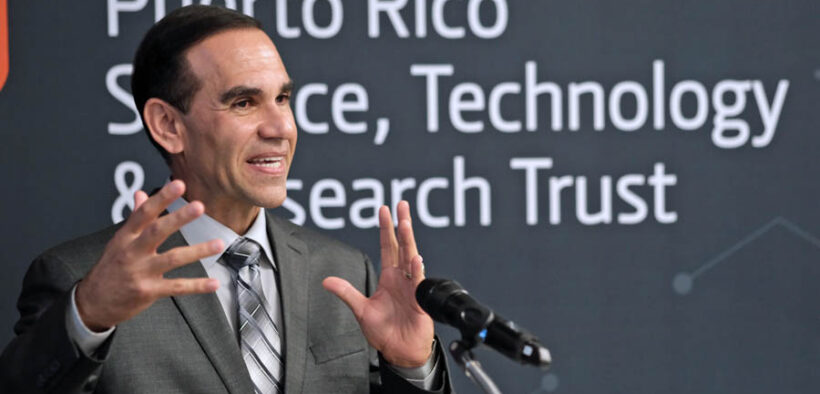Puerto Rican science project heads to International Space Station

University of Puerto Rico, Mayagüez, water filtration project to launch aboard SpaceX Crew-10.
Puerto Rican innovation is making its way to space as the Rhodium Water Filtration 01 project, developed at the University of Puerto Rico, Mayagüez Campus (known as RUM), is set to launch aboard the SpaceX Crew-10 mission.
Scheduled for tonight, at 7:48 p.m. from NASA’s Kennedy Space Center, this experiment seeks to transform water purification for long-duration space missions.
Led by David Suleiman-Rosado, professor of chemical engineering at RUM, the project addresses critical challenges on the International Space Station (ISS), including energy consumption, water reuse and maintenance limitations.
The research introduces a polymer nanocomposite membrane (PNM) designed to capture essential ions (Na+ and K+), inactivate microorganisms and separate urea from water, optimizing purification efficiency in space environments.
“This application, which we will study on the International Space Station, is not only an inspiration for me and all my students, but it can also be fundamental for the success of future space missions,” said Suleiman-Rosado. “It will help us better understand transport mechanisms, which could have implications for various applications benefiting our society.”
The project was initially funded by NASA and has continued to advance through support from the Puerto Rico Science, Technology, and Research Trust via its Advanced Research Grants: Space Edition program. Rhodium Scientific, a commercial service provider for biotechnology missions on the ISS, is also a key partner in the mission.
“We’re honored to be able to witness this launch with another research project facilitated from Puerto Rico,” said Science Trust CEO Lucy Crespo.
“Fostering these collaborations and endorsing these initiatives aligns with our mission to invest, facilitate and develop the necessary capabilities to continuously advance Puerto Rico’s economy and the well-being of its citizens through innovation-based enterprises, science, technology and public health,” she said.
Meanwhile, Olivia Gamez-Holzhaus, CEO of Rhodium Scientific, praised the project’s potential.
“This mission represents a unique technology demonstration with potential to improve life support systems on the ISS and future space destinations. Our partnership with the Trust and UPR Mayagüez represents the foundation of a commercial space industry emerging from Puerto Rico,” she said.
The experiment is the second space project that the Science Trust and Rhodium Scientific have funded, reflecting the island’s commitment to advancing cutting-edge scientific research.
“This research is a clear example of how education, science and technology can change the world and reach infinite space,” said Miguel Muñoz, interim president of the UPR.











